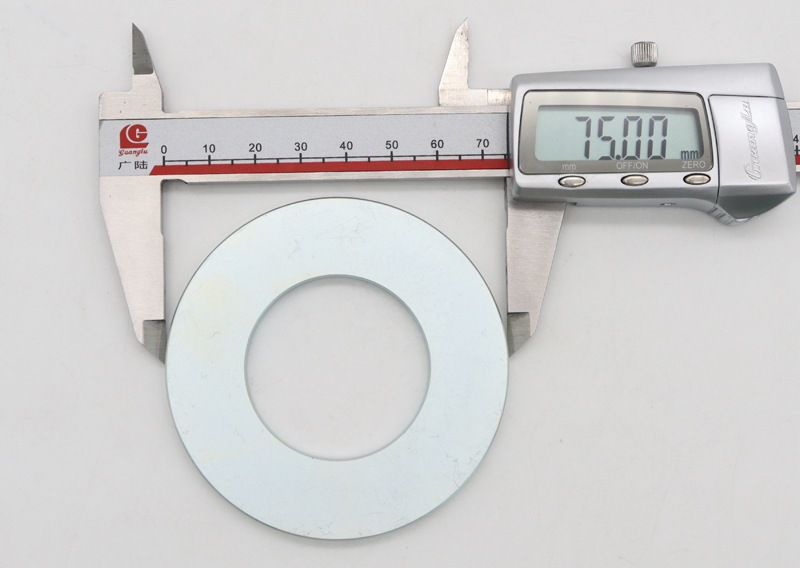We all know that permanent magnets are more afraid of high temperatures, especially rare earth neodymium magnets (NdFeB), temperature resistance for several other types of permanent magnets is relatively poor, today to introduce you have been more concerned about the neodymium iron boron strong magnets in the instantaneous high temperature will demagnetise the problem.
In some cases, NdFeB powerful magnets may demagnetise when exposed to instant high temperatures, but this depends on a variety of factors, including the type of magnetic material, temperature, magnetic field strength, and exposure time. In general, high temperatures can disrupt the magnetic arrangement within the material, leading to demagnetisation.
The picture shows a larger ring-shaped neodymium magnet with an outer diameter of 75mm.

The demagnetisation behaviour of strong magnets is mainly the following:
1. Curie temperature of magnetic materials: Magnetic materials have a critical temperature called Curie temperature, when the temperature exceeds this value, the material loses its magnetic properties. At temperatures higher than the Curie temperature, the arrangement of magnetic moments of the magnetic material becomes more random, leading to demagnetisation.
2. Thermal demagnetisation: If a strong magnet is exposed to high temperatures for a long enough period of time, the arrangement of magnetic moments within the magnetic material may become more random, leading to demagnetisation.
3, Thermal stress: high-temperature environments may lead to an increase in the thermal stress of the magnetic material, which may lead to changes in the structure of the material, thereby affecting the magnetic properties.
It is important to note that different types of magnetic materials have different sensitivities to temperature. Some materials lose their magnetic properties rapidly at high temperatures, while others may require higher temperatures to demagnetise, so whether demagnetisation occurs depends on the nature of the particular material and the temperature conditions to which it is exposed.
In summary, strong magnets exposed to momentary high temperatures may lead to demagnetisation, but whether demagnetisation occurs depends on the properties of the magnetic material as well as factors such as the temperature and time to which it is exposed.
Related magnet demagnetisation articles;
Reason Of Neodymium Magnet Demagnetization
Difference between demagnetized magnet and non-demagnetized magnet
 China Neodymium And Ferrite Magnets Manufacturer & Supplier
China Neodymium And Ferrite Magnets Manufacturer & Supplier 


